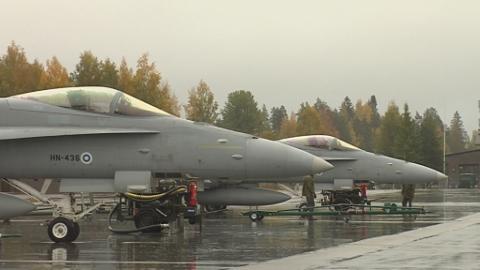The Commander of the Finnish Defence Forces, General Ari Puheloinen, held a press conference on the FDF’s financial situation and the defence reform on Thursday 1 September 2011. The general told about the guiding principles of the defence reform and the planning phases.
The defence forces will submit a comprehensive proposal for the reform to political decision makers at the beginning of 2012. During the press conference, General Puheloinen stressed that the defence forces are strong and committed to their social responsibility: “Society is changing, and so are we. We are assuming our responsibility in the government’s overall efforts to achieve savings.”
The fundamentals of defence still apply. The reform is based on the following principles: current tasks will continue, the effectiveness of conscription shall be ensured, and defence will be developed from the principle of regional defence. Reciprocity between the FDF and society as well as the ability to make good use of international cooperation must be reinforced further.
According to Puheloinen, defence spending should be restored to a state of equilibrium, as this guarantees the long-term maintenance and development of Finland’s defence capabilities. One of the reform’s primary aims is to ensure the functional capability of defence systems, which in turn makes the reform of regional troops absolutely necessary.
The commander presented a long list of practical measures with which cost savings will be achieved. These were: reducing the number of command and administrative levels and reorganising back office functions; relinquishing less important areas and properties; getting rid of overlaps, and increasing effectiveness in, for e.g., the military equipment and logistics functions.
Conscription shall remain but its implementation needs further development. The length of compulsory military service can be reduced by two weeks through practical arrangements. The FDF will not, however, be proposing that military service be cut down to four months because it is impossible to train capable troops in such a short period of time. Training functioning and comprehensive troops in one go during military service is still the most cost-effective way of building up the skills of the reserve.
The defence forces will propose that the FDF’s new organisation become effective at the beginning of 2015. This will ensure the effectiveness of reforms despite fiscal challenges.
The commander of the Finnish Defence Forces’ emphasised that the reforms will require decisions from the political leadership, a willingness to commit and change from the FDF personnel and the support of citizens.









